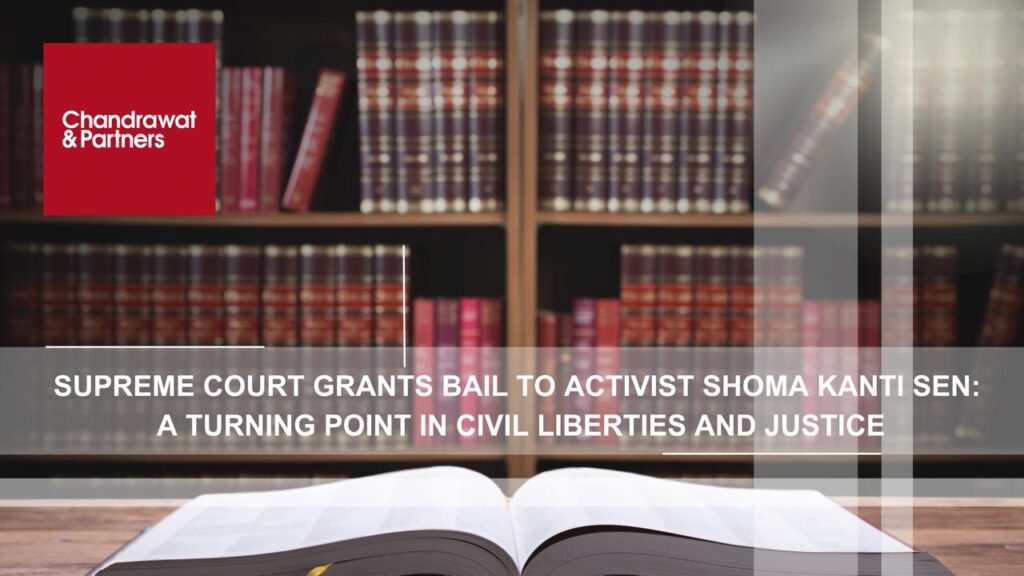Home > Recent Judgements > Supreme Court Grants Bail to Activist Shoma Kanti Sen: A Turning Point in Civil Liberties and Justice
April 07, 2025
Supreme Court Grants Bail to Activist Shoma Kanti Sen: A Turning Point in Civil Liberties and Justice
The Supreme Court of India delivered a landmark verdict granting bail to activist Shoma Kanti Sen, who has been at the center of the controversial Elgar Parishad-Maoist links case. This decision has sparked widespread debate, reflecting the delicate balance between safeguarding national security and upholding individual freedoms.
The Case Background
Shoma Kanti Sen, an outspoken activist known for her advocacy on social justice, human rights, and democratic values, was accused of having alleged links to Maoist activities as part of the Elgar Parishad case. The case, which has been under intense scrutiny since its inception, raised concerns about the use of anti-terror laws against activists and the potential suppression of dissenting voices.
Supreme Court’s Decision
While granting bail, the Supreme Court acknowledged the gravity of the charges but emphasized the principles of justice, fairness, and due process. The Court imposed stringent conditions to ensure that the bail did not undermine the ongoing investigation:
- Restriction on Movement: Shoma Kanti Sen is restricted from leaving the state of Maharashtra without explicit permission from the court.
- Mandatory Police Reporting: She must report to the local police at regular intervals, as determined by the Court.
- Continuous Mobile Tracking: The Court mandated real-time tracking of her mobile phone to monitor her whereabouts and ensure compliance with the bail conditions.
Implications of the Verdict
This ruling has significant implications for India’s legal and civil rights landscape:
- Civil Liberties Under Scrutiny: Activists and human rights organizations have mixed reactions. Some view the verdict as a victory for democratic values, while others argue that the conditions imposed infringe on personal freedoms.
- Judicial Caution: The Court’s cautious approach highlights the judiciary’s role in balancing the state’s security interests with constitutional rights.
- Precedent for Future Cases: This case sets a precedent for how similar cases involving activists and national security will be handled, potentially influencing future legal interpretations of bail and civil liberties.
Broader Legal Context
The verdict comes at a time when the judiciary faces increasing pressure to navigate complex issues surrounding national security, political dissent, and civil liberties. The Court’s decision reflects an evolving understanding of the delicate interplay between individual rights and the state’s responsibility to maintain public order.
Conclusion
The Supreme Court’s decision to grant bail to Shoma Kanti Sen is more than just a legal ruling; it’s a reflection of India’s ongoing struggle to balance justice, freedom, and security. As the case progresses, it will continue to shape the discourse on civil rights, judicial independence, and the broader interpretation of justice in India.
This judgment is a testament to the judiciary’s role as the guardian of the Constitution, ensuring that even in cases of national interest, the fundamental rights of individuals are not overlooked.
For more information or queries, please email us at
enquiries@chandrawatpartners.com





